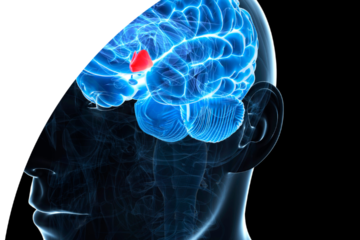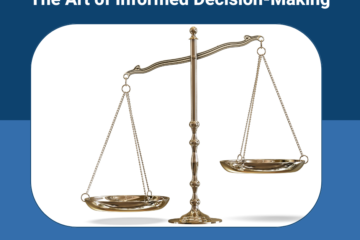
Introduction:
It’s easy to lose sight of our real purpose in a world full of distractions and responsibilities. But knowing our life’s purpose is the key to having a worthwhile and satisfying life. This blog post will help you find your life’s meaning through a transformative journey of self-exploration and personal growth.
How to Learn About Yourself
Self-exploration is the key to finding our true potential and knowing our core values, passions, and interests. When we look deeply into ourselves, we learn things that help us grow and feel happy.
When we go down the road of self-exploration, we open ourselves up to new ideas and experiences. This lets us find out what really speaks to our hearts and souls. Through self-reflection, we can learn more about our wants and goals, which can help us live a life with meaning.
As you start this trip of self-exploration, keep in mind that it is a process of growth and learning that never ends. Be kind to yourself and patient with yourself, and enjoy the journey of figuring out who you really are.
Figuring out what your strengths and weaknesses are
It’s important to know your strengths and flaws if you want to match your goals with your skills.
Make a list of your strengths, weaknesses, chances, and threats to do a SWOT analysis. Use your skills and work on your weaknesses to improve yourself and your career.
Ask for honest comments from friends, family, or coworkers. From the outside, you might see strengths you hadn’t seen before.
Recognize Transferable Skills:
Find skills you have that you can use in different parts of your life. These skills that can be used in different situations can tell you a lot about your strengths.
Look into your interests and successes:
Think about times in the past when you felt successful and excited. These situations can show where your natural skills shine.
Challenge Self-Limiting Beliefs:
Be aware of any beliefs you may have about yourself that make it hard to see your skills. Challenge them and replace them with thoughts that make you feel good.
Take assessments of your personality and your strengths:
Use personality evaluations or tests of your strengths to find out more about your unique skills and traits.
Take on new problems:
It’s good to take on new tasks that push you to your limits. Getting past problems can show you skills you didn’t know you had.
Find the Right Balance:
Address your weaknesses while you work on your skills. Try to find a balance between them by learning and growing as a person.
Set Goals That Can Be Met:
Set goals that you can reach and that play to your skills. Using your natural skills raises your chances of being successful.
By knowing your strengths and weaknesses, you can figure out how to make the most of your skills and improve areas that may need work. This understanding sets the stage for a purpose-driven road that leads to growth and happiness.
Setting Goals That Matter
Setting goals that are driven by a reason gives us a map to follow on our way to fulfillment. These goals keep us on track and keep us motivated on the road we want to take.
By breaking down long-term goals into steps that can be taken, we can make regular progress toward our goals. By setting goals that can be reached, we stay committed and don’t feel overwhelmed, which brings us closer to living a life with a purpose.
Setting clear, purpose-driven goals gives you the power to move through your journey with clarity and direction. When you combine your passion with clear goals, you build a powerful framework for your own growth and happiness.
Taking on Problems and Failing
Challenges are not roadblocks; instead, they are chances to learn and grow. When we take on challenges, we try our limits and broaden our horizons. This helps us get closer to our life purpose.
Failures, too, play an important role in our journey. Failures give us the chance to learn important lessons and change as we go. We get through hard times and keep making progress toward our goals because we are strong and determined.
Embracing problems and mistakes as chances to learn and grow turns setbacks into steps on the way to success. By having a growth mindset and learning from every event, you build the resilience you need to go through life with courage and resolve. Remember that difficulties give you the strength you need to reach your true purpose and full potential.
Getting better at self-compassion
Self-compassion is important for getting past problems and taking care of our health. By being kind and understanding to ourselves, we make a good environment for personal growth.
Celebrating success, no matter how small, helps us keep a positive attitude that lets us accept our flaws and be proud of our accomplishments. Self-compassion helps us be patient with ourselves, which gives us the strength to follow our life’s purpose.
Self-compassion is not something you can learn quickly, but it is a practice that can have a big effect on your health and how you feel about yourself. By being kind to yourself and understanding your flaws, you can create a safe place for personal growth and self-discovery. Self-compassion is a key part of living a full life, so learn to practice it.
Finding Happiness by Helping Others
Understanding how we want to affect other people and the world is an important part of our journey to find our meaning. Finding out how we can make a good difference in the lives of others and in society as a whole gives our actions more meaning.
When we use our purpose in our job and relationships, our actions are in line with our values, which makes us feel fulfilled and happy. When our purpose and the things we do every day are in sync, our lives become more meaningful and satisfying.
Embracing Learning for Life
A purposeful life is marked by being open to new ideas and events. Embracing lifelong learning lets us change and improve our goals over time.
New information and events give us new perspectives and ideas that help us move forward on our journey to find out more about ourselves. We stay relevant and able to change as long as we are open to growth and change.
Putting yourself in a supportive environment
For our journey to find our purpose, it’s important to build a group of people who share our values and will encourage and help us. Putting ourselves around encouraging people makes us stronger and gives us a sense of belonging to a group.
Seeking advice from teachers or life coaches is a good way to learn from people who have been where you are now. Their knowledge and support can help us stay on track with our goals.
Taking a step back and refocusing
To stay on track, we must regularly think about our journey and realign with our mission. Life changes, and our mission may change as we learn and grow.
Accepting changes and growth in our lives helps us stay true to who we really are. By thinking about how far we’ve come, we can repeat our goals and make any changes we need to stay on track.
Conclusion:
Finding out what your life is all about is a long and rewarding path. It’s a path that involves getting to know ourselves well, making goals that matter, welcoming challenges, and learning to be kind to ourselves.
We start living a meaningful life when we find satisfaction in helping others and are open to learning throughout our lives. We can stay on track with our purpose as long as we have a group of people who support us and take time to think about our journey.
So, let’s start this amazing journey of self-discovery and fulfillment, living life to the fullest as we find and accept our true life purpose.
FAQs
1. How can I tell if I’ve found my life’s purpose?
Finding your life’s purpose is a highly personal journey that involves self-exploration, introspection, and getting to know your interests and values. When you feel like your actions, beliefs, and contributions to other people are in line with who you are and what you want out of life, you are probably on the right path to finding your life’s purpose.
2. Does it happen often for people to change their goals in life?
Yes, it is normal for our life goals to change as we get older and learn new things. Life is a journey that is always changing, and as we learn and grow, our ideas about what our role is may change. Accepting these changes and getting back on track with our goals is a normal part of the process.
3. How can I get past problems and mistakes on my journey to find my purpose?
Think of obstacles as chances to grow and learn. Failures can help you get where you want to go because they teach you important lessons. Be kind to yourself and have patience with yourself when things are hard. Find people who share your goals and teachers who can help you and give you advice. Remember that problems and failures are part of the journey and can help you get closer to your life goal in the end.



0 Comments